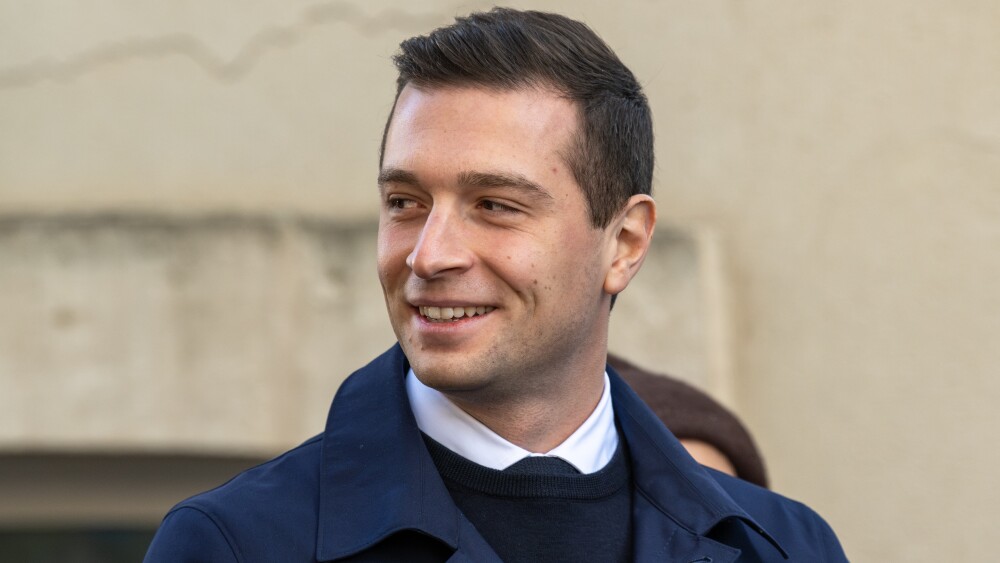The authoritative French pollster, Ifop Group, just released shocking data about young French Muslims. It is part of a survey for Ecran de Veille, a magazine that specializes in strategic issues and geopolitics. While born in France and raised as equal citizens, young French Muslims are not joining the mainstream French culture, unlike most youths from other immigrant groups.
Between 7 percent and 10 percent of the 68 million citizens or residents of France in 2025 are Muslim, against 1 percent in 1975.
Instead, they “re-Islamize.” They are turning toward a much more radical Islamic way of life than their own parents. Between 7 percent and 10 percent of the 68 million citizens or residents of France in 2025 are Muslim, against 1 percent in 1975. That’s a seven-fold to ten-fold increase. Fifty percent of the French Muslims are under 24, against 28.7 percent of the French as a whole.
This means that, no matter what, Islam is thus expected to carry weight in French society in the coming decades. Some 80 percent of the French Muslim youths describe themselves as religious, against a French global youth average of 48 percent. Muslims’ religious commitment is steadily increasing. Forty years ago, only 7 percent of the French Muslim youths under 24 were attending prayers at mosque.
Today, 84 percent of the Muslim youths attend public prayers on a regular basis, against fewer than 3 percent of the non-Muslim youths as a whole, and 8 percent of the “affiliated” young Christians. Likewise, Ramadan fasting has grown to 83 percent from 51 percent among the young Muslims. In 2003, some 16 percent of French Muslim girls under 24 would don the veil or wear any kind of Islamic garb.
That has risen to 45 percent today. Nearly 50 percent of the young Muslim men and nearly 60 percent of the young Muslim women frown upon shaking hands or kissing with the other gender, being medically attended by the other gender or engaging in mixed-gender sport activities. Most French Muslims used in the past to follow the moderate guidelines of the Maliki or Hanafi schools of religious jurisprudence regarding halal food.
They partook of regular Christian or Jewish French food as long as pork and alcohol were avoided. Young Muslims today seem to be so influenced by more restrictive views as to insist on fully certified halal products and services. Some popular restaurants owned and managed by non-Muslims, like the Five Guys chain, serve certified halal meat only and have withdrawn wine or beer from their beverages list.
The fundamentalist shift is apparent in the realm of theology, philosophy, and science. Whereas in 1998 some 41 percent of the young French Muslims used to support a “modernization” of Islam, only 21 percent express similar views today. Conversely, only 19 percent supported fundamentalism or “Islamism” in 1998, against 42 percent today.
In 1995, the primacy of Sharia over French law was rejected by 62 percent of all Muslims; today, by only 49 percent. Among the young, it is backed by 57 percent.
Asked a multiple choice question about the fundamentalist groups they support, 24 percent express today sympathy for the Muslim Brotherhood, 9 percent for Salafism, 8 percent for Wahhabism, 8 percent for Tabligh, 8 percent again for Tafkir and 3 percent for Jihadism. Many of these groups are illegal in many Muslim countries.
In 1995, the primacy of Sharia over French law was rejected by 62 percent of all Muslims; today, by only 49 percent. Among the young, it is backed by 57 percent. The primacy of la loi is the main tenet of the quasi-constitutional law of 1905 separating Church and State in France.
Although most young Muslims attend French secular schools, and large numbers of them go to college, 82 percent tend to discard the standard scientific views and hypotheses on the universe, the growth of life or evolution when it seems to contradict the Kuranic revelation. Youths from other religions tend to separate science and religious tradition.
François Kraus, who managed the survey for Ifop, wonders whether this re-Islamization should not be primarily understood “as a way for Muslim youth to assert their identity and collective power” within French society. The fact is that this re-Islamization goes hand in hand with a kind of symbiosis with an ultra-left party, Jean-Luc Mélenchon’s La France Insoumise.
In the 2022 presidential election, 69 percent of Muslims voted for Mr. Mélenchon, compared to 22 percent of the French population at large. In the 2024 European elections, 62 percent of Muslims voted for La France Insoumise, meaning France Unbowed. In the subsequent legislative elections, this party achieved its best results in constituencies with large Muslim populations.
Many observers conclude that France is undergoing a process of ‘Lebanonization,’ which in turn could lead to a war that would be not merely civil but also ethnic and religious.
The identification works both ways. The more La France Insoumise strengthens its foothold among Muslims, the more it aligns itself with radical Islamism or, since October 7, 2023, with an equally radical anti-Israel stance. Many observers conclude that France is undergoing a process of ‘Lebanonization,’ which in turn could lead to a war that would be not merely civil but also ethnic and religious.
Mr. Kraus notes that the rise of fundamentalist Islam is fostering, as a mirror effect, an incipient Christian revival, marked by the return of baptism — a rite neglected for some 30 years — as well as religious services, pilgrimages, and monasticism. Meanwhile, the National Rally continues to climb in the polls. For the first time, an Odoxa-Mascaret poll predicts victory for its leader Jordan Bardella in the 2027 presidential election, regardless of his main opponent.
Published originally on November 25, 2025.








